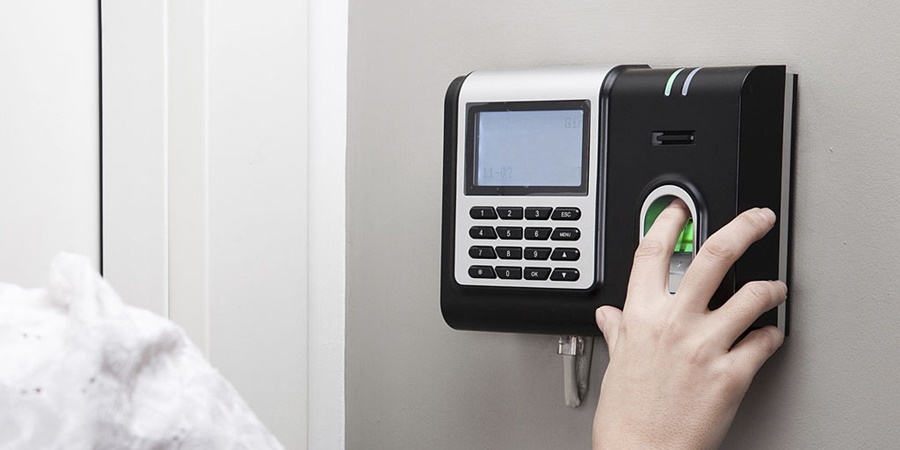Biometric Security Is The Future

Security has always been a paramount concern, both in our homes and workplaces in , . Recent times have highlighted the importance of commercial security, especially as workplaces are occasionally left unoccupied due to evolving work policies.
In the ever-evolving landscape of security technology, innovative solutions are continuously emerging to bolster our defenses. Among these advancements, biometric security stands out as a game-changer.
Understanding Biometric Security
Biometric security is a revolutionary concept in the security industry, leveraging an individual's unique biological characteristics for authentication and authorization. Traditionally, gaining access to a secured area involved a physical key or keycard. However, such methods are susceptible to theft, duplication, or misuse, particularly in the case of disgruntled employees.
Biometric security, on the other hand, relies on a person's biological traits as the validating factor. This can encompass various aspects, such as fingerprints, retinal scans, voice patterns, or comprehensive facial recognition.
Enhanced Security
Biometric security systems, designed for access control, create formidable barriers that deter typical criminals. With the elimination of physical keys and keycards, the risk of unauthorized entry through theft or forgery is virtually eliminated.
This means that only those with substantial financial resources, advanced technology, or, in the worst-case scenario, the ability to coerce specific individuals, could potentially breach such systems. Most criminals lack the capability to replicate biometric data accurately, whether it be a unique fingerprint or voiceprint.
Unparalleled Convenience
One of the standout features of biometric access control security is the unparalleled convenience it offers. Consider a commercial or industrial property where different individuals require varying levels of access. In a traditional lock-and-key system, this necessitates an extensive collection of keys.
However, with biometrics, the same fingerprint, voiceprint, or retinal scan can grant access to specific areas while restricting it from others. Moreover, when an employee is terminated, it's a simple matter to revoke their biometric access rights. There's no need for a company to replace locks and issue new keys, as was the case when a physical key was stolen.
Biometric systems also maintain detailed logs of entry times and user identities. For example, if someone enters the property at an unusual hour, say, two in the morning on the weekend, the biometric system records the event and identifies the individual involved. This level of oversight simplifies the task of tracking both authorized and unauthorized employee movements within a facility.
If you're interested in learning more about the latest advancements in biometric security here in , , please don't hesitate to get in touch with us. We're here to guide you through the options that best suit your specific security needs.
Categories
- Access Control
- Alibi Cloud
- Business Security
- Cybersecurity
- Digital Video Recorders
- Hidden Cameras
- Home Automation Systems
- Home Security
- Loss Prevention
- Network IP Security
- Public Facilities
- School Security
- Security
- Security Camera Technology
- Success Stories
- Understanding Security Surveillance
- Video Security Systems
- Wireless Security